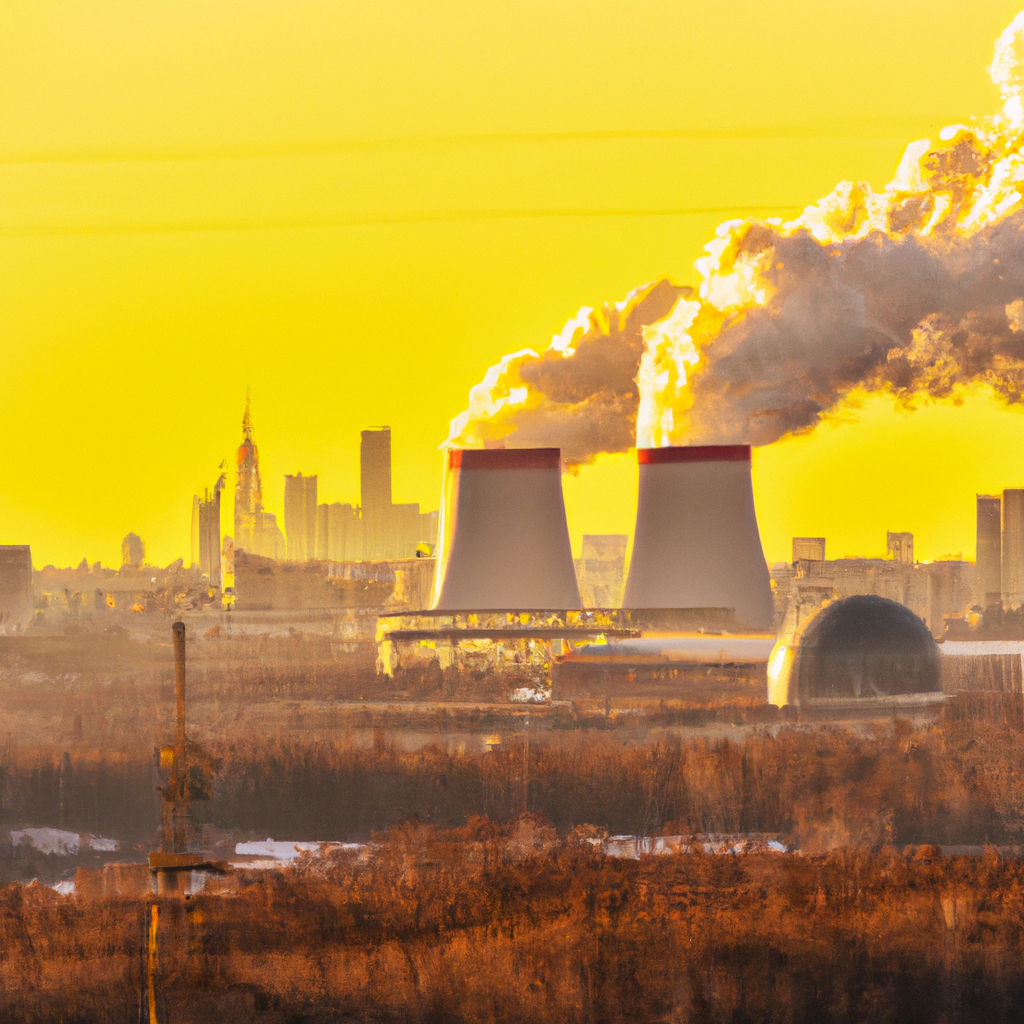In today’s fast-paced and energy-hungry world, businesses are always looking for ways to cut costs and improve efficiency. One solution that has gained considerable attention in recent years is nuclear energy. Despite the bad rap that nuclear power has gotten in the past, it is actually one of the most reliable and cost-effective forms of energy available today. In this article, we will explore the economics of nuclear energy and why it makes sense for businesses to invest in this technology.

The Benefits of Nuclear Energy
Nuclear power plants generate electricity by using nuclear reactions to heat water, which produces steam that drives a turbine and generates electricity. Unlike fossil fuels, nuclear energy does not produce greenhouse gases or other harmful pollutants. This makes it an excellent choice for businesses that are looking to reduce their carbon footprint and improve their environmental impact.
Another benefit of nuclear energy is that it is extremely reliable. Nuclear power plants can operate 24 hours a day, seven days a week, and can generate electricity consistently for years without interruption. This makes it an ideal choice for businesses that require a stable and consistent source of energy.
The Cost of Nuclear Energy
One of the most common misconceptions about nuclear energy is that it is expensive. While it is true that building a nuclear power plant requires a significant upfront investment, the long-term cost savings can be substantial. In fact, the cost of generating electricity from nuclear power is often lower than the cost of generating electricity from fossil fuels.
This is because nuclear power plants have low operating costs once they are up and running. Unlike fossil fuel power plants, which require a constant supply of fuel, nuclear power plants can operate for several years on a single fuel load. This means that businesses that invest in nuclear energy can lock in their energy costs for years to come, providing them with a stable and predictable source of energy.
The Safety of Nuclear Energy
One of the main concerns that people have about nuclear energy is safety. While it is true that nuclear accidents can be catastrophic, the reality is that modern nuclear power plants are designed with safety in mind. In fact, nuclear power plants are some of the safest and most regulated facilities in the world.
Furthermore, the risk of a nuclear accident is actually quite low. According to the World Nuclear Association, the probability of a nuclear accident is around 1 in 3 million reactor years. This means that the risk of a nuclear accident is actually lower than the risk of a plane crash or a car accident.
The Future of Nuclear Energy
Despite the many benefits of nuclear energy, there is still some skepticism about its future. However, the reality is that nuclear energy is likely to play an important role in the future of energy production. This is because nuclear energy is one of the few forms of energy that is both reliable and low-carbon.
In fact, many countries around the world are investing in nuclear energy as a way to reduce their carbon emissions and improve their energy security. For example, China is currently building more nuclear power plants than any other country in the world, while the United States is planning to build several new nuclear power plants in the coming years.
Conclusion
In conclusion, nuclear energy is a reliable, cost-effective, and low-carbon source of energy that makes sense for businesses. While there are certainly risks associated with nuclear energy, modern nuclear power plants are designed with safety in mind and the risk of a nuclear accident is extremely low. With the world’s increasing demand for energy and the need to reduce carbon emissions, nuclear energy is likely to play an increasingly important role in the future of energy production.






